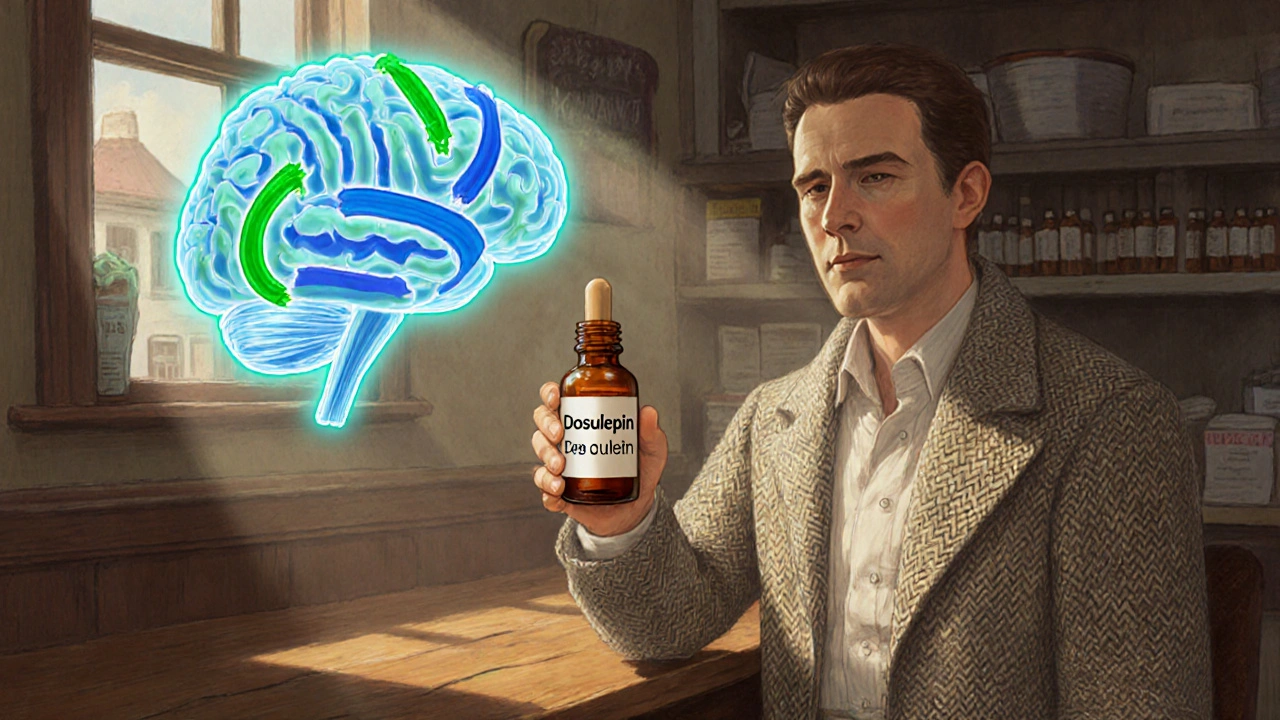Dosulepin Side Effects: What You Need to Know Before Taking It
When you start taking dosulepin, a tricyclic antidepressant used to treat depression and sometimes chronic pain. Also known as dothiepin, it works by balancing brain chemicals like serotonin and norepinephrine. But like all medications, it comes with trade-offs — and knowing what those are can help you stay safe and in control. Many people take dosulepin without major issues, but others experience side effects that can be mild, annoying, or sometimes serious enough to stop treatment.
Common side effects include dry mouth, constipation, drowsiness, and blurred vision. These aren’t rare — up to half of users report at least one. Drowsiness is especially common in the first few weeks, which is why doctors often recommend taking it at night. Weight gain is another frequent concern; some people gain 5–10 pounds over a few months. If you’re already managing your weight or have diabetes, this matters. Less common but more serious effects include changes in heart rhythm, low blood pressure when standing up, and confusion in older adults. These aren’t everyday occurrences, but they’re real enough that your doctor should monitor you, especially if you’re over 65 or have a history of heart problems.
It’s also important to know how dosulepin compares to other tricyclic antidepressants, a class of older antidepressants including amitriptyline, nortriptyline, and imipramine. While dosulepin is often chosen for its sedating effect — helpful if you struggle with sleep — it tends to cause more drowsiness and dry mouth than newer options like SSRIs. But for some people, especially those who haven’t responded to other meds, it still works better. And unlike some antidepressants, it doesn’t usually cause sexual side effects early on, which is a plus for many.
If you’ve been on dosulepin for a while and notice new symptoms — like rapid heartbeat, fainting, extreme confusion, or trouble urinating — don’t wait. These could signal something more serious. Stopping dosulepin suddenly can also cause withdrawal symptoms like nausea, headaches, and anxiety, so always talk to your doctor before making changes. And remember: just because a side effect shows up on a list doesn’t mean it’ll happen to you. Everyone reacts differently. What matters is paying attention to your body and speaking up when something feels off.
The posts below give you real, practical insights from people who’ve dealt with dosulepin and similar meds. You’ll find comparisons with other antidepressants, tips for managing side effects at home, and advice on when to push back on your doctor if things aren’t right. No fluff. No jargon. Just what you need to make smarter choices about your treatment.

Dosulepin vs Other Antidepressants: Benefits and Side Effects Compared
A clear, side‑by‑side look at dosulepin versus other antidepressants, covering benefits, risks, dosing and practical tips for choosing the right medication.
Read more